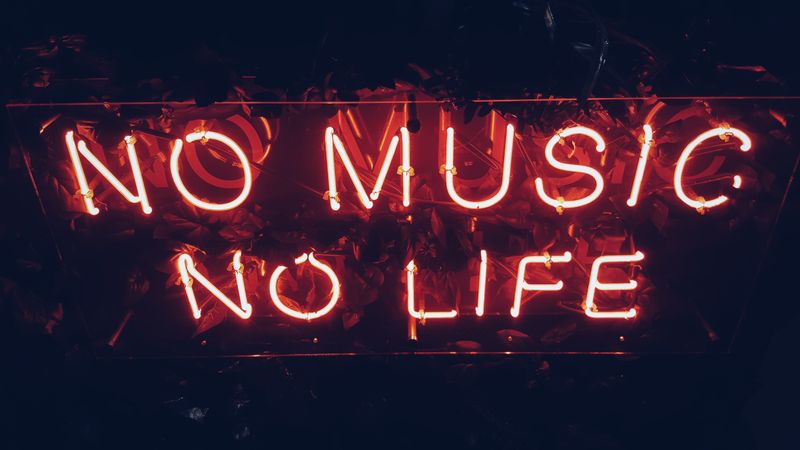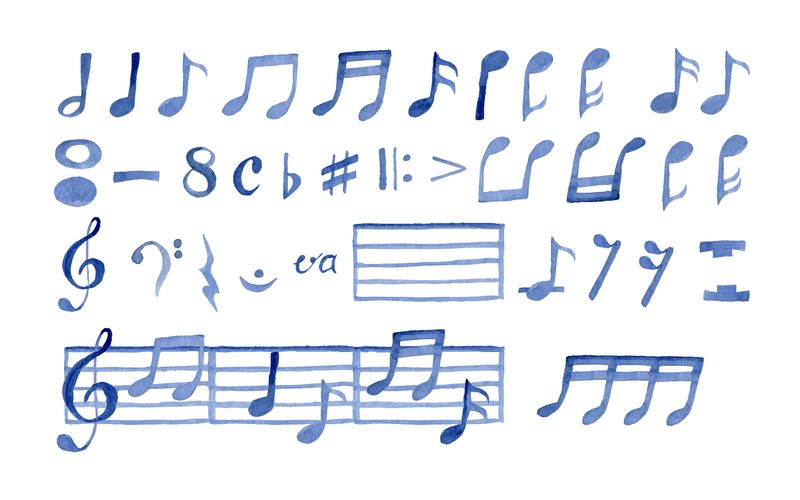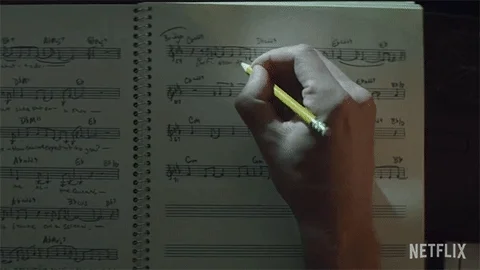Are you constantly listening to and exploring new music?
Do you enjoy expressing yourself through music?
Are you fascinated by howmusicis put together?
If you answered YES to these three questions, then becoming a music composer might be the right fit for you!
 Photo by Simon Noh on Unsplash
Photo by Simon Noh on UnsplashWhat do music composers do?
Music composers turn ideas into music. This includes:
writing and creating new music.
arranging other composers' music to make it suitable for different instruments or voices.
advising musicians on how their music can be performed.
What tools do music composers use?
Past
Music composers produced music manually by hand. They:
wrotetheir ideas on manuscript paper.
used instruments to play and develop their musical ideas.
got orchestras or ensembles to perform their compositions.

Present
Music composers use technology and music notation software to:
create individual parts for performers to play from.
turn their musical ideas into music notation.
create electronic sounds that can't be created by orchestral instruments.
record and edit their compositions.

What projects do music composers work on?
Music composers work on a variety of projects. These include:

Film and TV soundtracks with executive directors.

Jingles and commercials with advertisement companies.

Orchestra and/or ensemble pieces for various music groups.

Soundtracks for video games with game producers.
They also enter competitions to gain recognition, compose new music, and teach the next generation of up-and-coming composers at universities and colleges.
Do I need any qualifications to become a music composer?
It's helpful to have a music degree from an accredited institution to kickstart your career.
 You'll learn about:
You'll learn about:
a variety of musical genres.
musical structures and forms.
music theory.
orchestration and instruments.
 You'll also get to:
You'll also get to:
meet like-minded people (think networking — these people may help you find jobs!).
compose music and build your portfolio.
Quiz
Brad is keen to get experience to help him start his music composing career. What should he do?
What can I earn as a music composer?
General Salary
 The annual salary for a music composer in Canada ranges from $57,536 to $96,268 (CAD).
The annual salary for a music composer in Canada ranges from $57,536 to $96,268 (CAD).
 The annual salary for a music composer in the USA ranges from $55,068 to $92,137 (USD).
The annual salary for a music composer in the USA ranges from $55,068 to $92,137 (USD).
Freelance Salary
💡 Many composers are freelance and juggle different projects at different times. Pay depends on how much music is being composed and what it's being composed for.
Let's take composing for a film score. What you'll be paid depends on the size of the production:

$0-$10,000+ (USD) for a student film
$2,500-$500,000+ (USD) for an indie feature
$35,000-$2mil+ (USD) for a studio feature
You'll love being a music composer if...
you like being in control of your own work.
you enjoy working on a project from start to finish.
you love working with different people and listening to their ideas.
you're resilient and able to take criticism and rejection.

You might not like being a music composer if...
you prefer to sit in front a computer all day at an office job.
you want a secure and regular paycheck.
you don't like working under pressure to tight deadlines.

Take Action
Like the sound of turning everything into music? Then it's time to start making your composing dream a reality!

Your feedback matters to us.
This Byte helped me better understand the topic.

